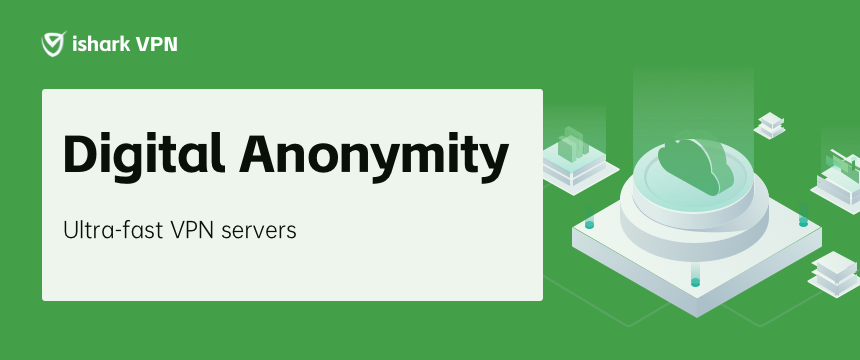VPN and Digital Anonymity: Exploring Anonymity and Tracking Defense
ishark blog article
In the digital age, with the proliferation of the internet and technological advancements, personal online activities are becoming increasingly susceptible to monitoring and tracking.
For some users, maintaining digital anonymity has become of paramount importance. Virtual Private Networks (VPN) play a crucial role as privacy protection tools, helping users achieve digital anonymity on the internet and effectively defend against tracking, ad tracking, and data collection.

The Significance of Digital Anonymity
In the information-saturated world of the internet, the collection and abuse of personal information are rampant. Many companies, advertisers, and hackers attempt to track users' online activities to gather personal information, browsing habits, and interests for targeted advertising or malicious purposes. Maintaining digital anonymity is a critical means of protecting personal privacy and data security.
How VPN Achieve Digital Anonymity
VPN create an encrypted tunnel that redirects users' network traffic from their devices to VPN servers and then forwards it to the target websites or services, concealing users' real IP addresses. This renders the source location of users' online activities invisible on the internet, enhancing their digital anonymity.
Preventing Tracking and Ad Tracking
Many websites and service providers use trackers and cookies placed on users' devices to track their browsing habits and utilize this data for targeted advertising. Using VPN can effectively block the collection of such trackers and cookies, reducing users' exposure to ad tracking and bolstering digital anonymity.
Preventing Data Collection and Privacy Protection
Many internet companies collect users' personal data to create user profiles and conduct market analysis. This data may include users' location information, search history, shopping habits, etc. Using VPN can effectively prevent the collection and abuse of users' personal data, safeguarding their privacy.
VPN Encryption Technology
VPN employ encryption technology to protect users' data transmission. By using robust encryption algorithms such as SSL/TLS and IPsec, VPN ensure that users' online activities receive effective protection during transmission, preventing hackers and malicious entities from obtaining users' sensitive information.
Choosing and Using VPN
While VPN provide digital anonymity and privacy protection for users, selecting the right VPN service provider is crucial. Users should choose reputable VPN providers with fast and stable servers to ensure reliable privacy protection.
Furthermore, users should avoid using free VPN services, as some free VPN may collect user data for commercial gains. Paid VPN typically offer better privacy protection and user experience.

Future Outlook for VPN
As cybersecurity threats continue to evolve, VPN technology will continue to advance. VPN providers will continue to optimize their services, offering more robust and flexible solutions for achieving digital anonymity and defending against future network security challenges.
Conclusion:
In the digital age, maintaining digital anonymity is crucial for protecting personal privacy and data security. VPN, as powerful privacy protection tools, help users achieve digital anonymity on the internet by concealing their real IP addresses and encrypting data transmission, preventing tracking, ad tracking, and data collection. Users need to carefully select VPN service providers that suit their needs to ensure reliable digital anonymity and privacy protection.









